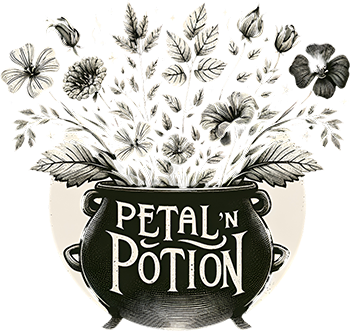T h e K i d n e y s

The kidneys are vital organs that play a crucial role in detoxification and maintaining overall health. These bean-shaped organs are responsible for filtering blood, removing waste products, and balancing fluids and electrolytes in the body. Understanding the kidneys’ function and how to support their health is essential for effective detoxification and overall well-being.

Understanding the
K i d n e y s
Anatomy of the Kidneys
The kidneys are a pair of bean-shaped organs located on either side of the spine, just below the rib cage. Each kidney is about the size of a fist and contains around a million tiny filtering units called nephrons. The main components of the kidneys include:
- Cortex: The outer layer where blood filtration begins.
- Medulla: The inner region containing the renal pyramids and collecting ducts.
- Renal Pelvis: A funnel-shaped structure that collects urine and channels it to the ureter.
- Nephrons: The functional units of the kidneys, responsible for filtering blood and forming urine.
This guide will explore the anatomy and function of the kidneys, their role in detoxification, methods to support kidney health, and lifestyle factors that enhance renal function.
H o w t h e K i d n e y s w o r k
Sweating supports detoxification by expelling:
- Heavy Metals: Such as mercury, lead, and cadmium.
- Toxins: Including bisphenol A (BPA) and phthalates.
- Waste Products: Generated from metabolic processes.
The role of the
K i d n e y s i n D e t o x i f i c a t i o n
Waste Removal
The kidneys play a critical role in eliminating various waste products from the body, including:
- Urea: A byproduct of protein metabolism.
- Creatinine: Generated from muscle metabolism.
- Uric Acid: Produced from the breakdown of purines.
- Toxins: Various environmental and dietary toxins.

Fluid & Electrolyte Balance
The kidneys help maintain the balance of fluids and electrolytes in the body by regulating the levels of:
- Sodium: Essential for nerve and muscle function.
- Potassium: Important for heart and muscle function.
- Calcium: Crucial for bone health and muscle contraction.
- Phosphate: Needed for energy production and bone health.
Blood Pressure Regulation
The kidneys regulate blood pressure through the renin-angiotensin-aldosterone system (RAAS), which controls blood vessel constriction and sodium and water retention.
Acid-Base Balance
The kidneys help maintain the body’s acid-base balance by excreting hydrogen ions and reabsorbing bicarbonate, ensuring the blood remains at a healthy pH level.

Methods to
S u p p o r t K i d n e y H e a l t h
Stay Hydrated
Proper hydration is essential for kidney function as it helps dilute urine and promotes the elimination of toxins.
- Daily Intake: Aim to drink at least 8-10 glasses of water per day.
- Hydrating Foods: Include fruits and vegetables with high water content, such as cucumbers, watermelon, and oranges.
Avoid Smoking and Limit Alcohol
Smoking and excessive alcohol consumption can damage the kidneys and impair their function.
- Quit Smoking: Seek support to quit smoking if you currently smoke.
- Moderate Alcohol: Limit alcohol intake to moderate levels.
B a l a n c e d D i e t
A nutritious diet supports kidney health and overall detoxification.
- Low Sodium: Limit salt intake to reduce the risk of high blood pressure and kidney damage.
- Potassium-Rich Foods: Include bananas, sweet potatoes, and spinach to support electrolyte balance.
- Calcium-Rich Foods: Consume dairy products, leafy greens, and fortified foods for bone and kidney health.
- Lean Proteins: Opt for chicken, fish, and plant-based proteins to reduce the burden on the kidneys.
R e g u l a r E x e r c i s e
Physical activity supports overall health, including kidney function. Regular exercise helps maintain a healthy weight and blood pressure, reducing the risk of kidney disease.
- Aerobic Exercise: Such as walking, running, or cycling.
- Strength Training: To build muscle and support metabolic health.
- Flexibility Exercises: Such as yoga or stretching.
M o n i t o r Y o u r B l o o d P r e s s u r e a n d B l o o d S u g a r
High blood pressure and diabetes are leading causes of kidney disease. Regularly monitoring and managing these conditions can protect your kidneys.
- Regular Check-Ups: Schedule regular visits with your healthcare provider.
- Healthy Lifestyle: Adopt a balanced diet and exercise routine to manage blood pressure and blood sugar levels.
- Medications: Take prescribed medications as directed by your healthcare provider.
Lifestyle Factors to
E n h a n c e K i d n e y F u n c t i o n
Stress Management
Chronic stress can negatively impact kidney health. Incorporating stress-relief techniques can support overall wellness.
Stress Management Techniques
- Meditation: Practice mindfulness or guided meditation to reduce stress.
- Deep Breathing: Engage in deep breathing exercises to promote relaxation.
- Hobbies: Participate in activities that bring joy and relaxation.

Adequate Sleep
Quality sleep is essential for overall health, including kidney function. Aim for 7-9 hours of quality sleep per night.
- Consistent Schedule: Maintain a regular sleep-wake cycle.
- Sleep Environment: Create a dark, cool, and quiet sleeping environment.
- Wind Down Routine: Establish a relaxing pre-sleep routine.
Herbal Supplements
Certain herbs can support kidney health and enhance detoxification.
- Dandelion Root: Acts as a diuretic and supports kidney function.
- Nettle Leaf: Rich in nutrients and supports urinary health.
- Parsley: Contains compounds that support kidney health and detoxification.
P r e - C l e a n s i n g T i m e l i n e
week 1
(Days 1-7)
Initial Preparation
- Hydration: Start increasing your water intake.
- Diet: Transition to a low-sodium, balanced diet rich in fruits, vegetables, and lean proteins.
- Exercise: Incorporate daily physical activities like walking or yoga.
- Blood Pressure Monitoring: Begin regularly monitoring your blood pressure.
week 2
(Days 8-14)
Enhanced Support
- Herbal Supplements: Introduce supportive herbs gradually, such as dandelion root and nettle leaf.
- Hydrating Foods: Increase your intake of hydrating fruits and vegetables.
- Stress Management: Incorporate stress-relief techniques into your routine.
- Sleep Hygiene: Focus on improving sleep quality by establishing a consistent sleep routine.
week 3
(Days 15-21)
Intensifying Efforts
- Increased Exercise: Increase the intensity and duration of workouts.
- Balanced Diet: Continue with a kidney-friendly diet, emphasizing potassium-rich and calcium-rich foods.
- Herbal Teas: Incorporate herbal teas that support kidney health, such as parsley tea.
- Regular Check-Ups: Schedule a visit with your healthcare provider to monitor kidney function.
week 4
(Days 22-30)
Final Steps
- Consistency: Maintain all practices consistently.
- Assessment: Evaluate how your body feels and make adjustments if necessary.
- Preparation for Cleanse: Ensure you are fully ready to begin your detox or parasite cleanse by optimizing hydration, diet, exercise, and stress management.
The kidneys are essential organs for detoxification and maintaining overall health. By understanding their function and adopting lifestyle practices that support kidney health, you can enhance the effectiveness of your detoxification efforts and promote overall well-being. Prioritizing hydration, maintaining a balanced diet, engaging in regular physical activity, managing stress, and monitoring blood pressure and blood sugar levels are key strategies for optimal kidney function.
